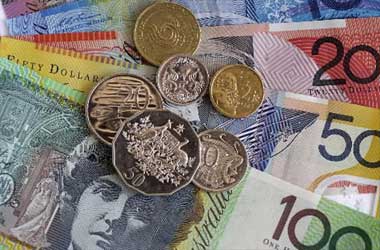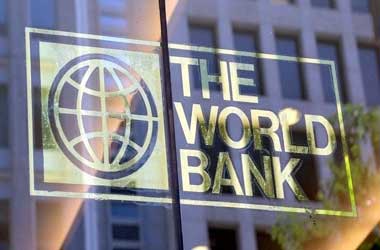 On Tuesday, the dollar index was at 93.2, near its highest level since August 23rd, as investors remained cautious ahead of the US Federal Reserve’s policy meeting, which concludes on Wednesday. Traders are still waiting for more information on when the Fed will begin to reduce its stimulus.
On Tuesday, the dollar index was at 93.2, near its highest level since August 23rd, as investors remained cautious ahead of the US Federal Reserve’s policy meeting, which concludes on Wednesday. Traders are still waiting for more information on when the Fed will begin to reduce its stimulus.
Meanwhile, the prospect of a China Evergrande default has dampened global risk appetite. Thursday is the deadline for a $83.5 million interest payment on one of its bonds, and the company has $305 billion in liabilities. The NAHB housing market index in the United States increased to 76 in September 2021, rebounding slightly from a one-year low of 75 in August and exceeding market expectations of 74.
The current single-family sub-index rose to 82 from 81 the previous month, while the gauge for prospective buyers increased to 61 from 59. Meanwhile, the sub-index for home sales over the next six months remained unchanged at 81. On Monday, US Treasury yields fell as fears that property developer China Evergrande Group would default fueled a global equity sell-off, sending investors fleeing to safe-haven bonds.
Treasury prices rose, pushing yields on the benchmark 10-year note down 6 basis points to 1.306 percent at one point before falling back to 1.3226 percent. Copper prices, which are widely used in the power and construction industries, were near a one-month low on Tuesday as a debt crisis at China developer Evergrande Group sparked a sell-off across markets and fueled concerns about global demand.
By 0337 GMT, three-month copper on the London Metal Exchange had risen 0.3% to $9,063 per tonne, but it was still hovering near its lowest level since Aug. 20 of $8,975 per tonne, which was reached in the previous session. So far this month, the contract has lost 4.8%.
Global stock markets grappled with contagion fears sparked by China Evergrande’s problems, as growing fears that the property giant would default on its massive debt pile prompted investors to flee riskier assets. The biggest concern investors should have about the crisis gripping overly indebted Chinese real estate developer Evergrande, according to Goldman Sachs, is global contagion.
“The risk is precisely the contagion effect, which would occur if a default occurred without clear ‘ring-fencing’ of spillovers to other parts of the real economy or financial sector. Events over the last week indicate a danger of moving in that direction.” Hui Shan, a research analyst at Goldman Sachs, said in a research note on Monday.
Shan notes that she is already witnessing indications of “contagion” linked to Evergrande, a term that sprang into the financial media vocabulary during the Great Financial Crisis when the bankruptcy of Lehman Brothers pressed all asset markets worldwide. “Other developers’ high-leverage equities and bonds have fallen off. Protests at Evergrande offices throughout China may increase skepticism among prospective homeowners in general. Property developers’ inability to get financing has contributed to the failure of land auctions in a number of places” Shan said.
To begin this week’s trading, a scent of contagion swept across US markets. US firms having a disproportionate amount of exposure to China, such as Apple and Tesla, sold down sharply and were among the most frequently visited ticker pages on the Yahoo Finance website. Concerns over Evergrande prompted a roughly 10% drop in bitcoin (which is often regarded as a safe-haven investment during periods of stock market volatility), which extended to shares of crypto mining tech supplier Nvidia.
Goldman’s Shan detailed various possible scenarios for China’s economic growth as a result of the Evergrande problems, all of which would exacerbate global asset market concerns of contagion. Shan explains,
“In the first scenario, the overall negative effect would reduce production by 1.4 percent of GDP, with the direct impact being the most significant. The overall negative effect in the second scenario rises to 2.5 percent of GDP. The overall negative impact in the third scenario is as high as 4.1 percent of GDP, with the financial conditions channel accounting for the majority of the total impact, demonstrating the significance of the financial spillover effect on the economy in this most pessimistic scenario. It should be noted that this is a partial equilibrium exercise that does not account for possible monetary and fiscal policy easing in reaction to property market falls.”
On Tuesday, the offshore yuan fell to an almost one-month low, while the safe-haven dollar and yen rose as investors sought refuge from a possible China Evergrande default. The yuan was trading at 6.4805 per dollar, having fallen as low as 6.4879 on Monday for the first time since August 23.
Mainland markets are closed for the Christmas season until Wednesday. “It seems like the market was expecting something from the Chinese authorities over the weekend to calm markets and ringfence the contagion fears from an impending Evergrande default, and that didn’t come,” Chris Weston, head of research at Melbourne brokerage Pepperstone, said in a client note.
“Traders anticipate a credit event.” Wells Fargo analysts predict that the dollar will hit 6.60 per yuan in the next month for the first time since November. The US dollar had already been gaining on anticipation that the Federal Reserve will indicate the start of stimulus reduction during its two-day policy meeting, which concludes Wednesday. The dollar remained largely steady at $1.17245 per euro, having risen to $1.1700 overnight, a high since August 23.




